- Home
- Sherwood Smith
Stranger Page 9
Stranger Read online
Page 9
He was unfamiliar with some of the moves, and others had different names from those he’d learned. But it was basic stuff: kicks and punches, slides and blocks.
“Free sparring,” Jennie announced.
The tall boy headed straight for Ross, who put up his hands and kept himself light on his feet.
Jennie swept the guy’s arm aside with an open-handed block. “Yuki, I want you to spar with Henry. He’s been dropping his fists. Pop him on the nose if he doesn’t get those blocks up in time.”
A boy with sand-colored hair and freckles clutched his nose in mock agony.
Jennie smiled at Ross. “We’ll start slow and light, okay?”
They began to circle. Ross watched her for an opening. She didn’t have any obvious weaknesses. Her balance was excellent. She bounced lightly on the balls of her feet, one muscular arm forward and one held back. He snapped out a jab to test her defenses. Rather than blocking, she slid back, braids swinging, leaving him fully extended with his fist one inch short of her face. She was teasing him.
Then she threw a jab, careful of his left side. Unlike his testing move, hers was a fake. Her thigh muscles bunched under her pants, signaling a sweep, and Ross leaped up. Her foot swung through the empty space where his ankles had been.
He grinned at her, and she grinned back, on the verge of laughter. He could feel as well as see that she loved sparring as much as he did.
“Okay, maybe not so slow and light,” she said.
And she lunged. Ross knew he was good. He had to be, or he’d have been dead a long time ago. But Jennie was right there with him. She knew moves he’d never even seen—spinning kicks, leaping kicks, deceptive moves to lure an attacker off balance, joint locks, throws. He clipped her cheek with an open-handed strike, and when he paused to see if he’d hit her too hard, she grabbed his right wrist and threw him down, then waited for him to roll and leap to his feet. He stopped worrying about hurting her. He wasn’t sure he could, anyway.
At least he was making her sweat. Her skin gleamed like obsidian. He blinked salt out of his own eyes. She seemed to be laughing at him.
He lifted his right hand in challenge. “Come on! That all you got?”
Then she did laugh. Whether she took his bait or didn’t believe that he was her match, he didn’t know, but she charged exactly as he’d hoped she would, coming in fast with her arms twisting to grab. Rather than dodging, Ross dropped low and tackled her.
They hit the ground rolling, each struggling to gain control. Strong legs clamped around his and flipped him over on his back. He pinned her left arm with his right. Inches above him, her deep brown eyes gazed into his. Warm breath brushed his cheek. It smelled like peaches. A drop of her sweat fell into the hollow of his throat.
Neither moved. A flash of light drew his gaze upward, past Jennie’s face. The entire school had circled up to watch them.
“That’s what I call a good match,” she said breathlessly, and leaped to her feet.
9
Mia
MIA WAS IN THE HALLWAY WHEN SHE HEARD A MUFfled explosion, followed by swearing. She scooped up the sand bucket and burst into the kitchen, where she found her dad slapping a wet dishcloth at a pillar of green flame rising from a frying pan. Mia tossed the sand onto the fire and watched in satisfaction as the flames died. An acrid smell rose up from the pan, making her eyes water.
She wrinkled her nose. “What were you making this time?”
Her father gave a rueful sigh. “You know the seaweed that gels liquids, the one I use to make pills? I used it to solidify some chicken broth, and then I cut it into noodles, coated them in flour, and tried to fry them. I was hoping they’d be crispy on the outside and liquid on the inside.”
“That is disgusting, Dad. Who’d eat that?”
“I would.” Ross appeared at the door. “Sounds interesting.” Mia could actually see when the fumes reached him—he rocked backward and rubbed his eyes. “Unless it tastes like the smell in here. What happened?”
“An unfortunate chemical reaction when chicken gelatin made contact with hot oil.”
“Let’s all go to Jack’s,” Mia said, knowing how happy the suggestion would make her father. “We can invite Anna-Lucia.”
“Excellent idea.” He picked up a piece of chalk. “I’ll leave a note for Becky to join us. She’s checking on Grandpa Wells. And I’ll take along some of my latest kimchi for Anna-Lucia. She has good taste.”
“Who’s Anna-Lucia?” Ross sounded distinctly alarmed.
“My girlfriend,” Mia’s dad explained. “She manages the saloon and she’s the best baker in town. Luckily, I have the wherewithal for all of us—and even dessert.” Mia fished some scrip from the basket while he wrote a note on the slate by the office.
As they walked out, Ross asked, “Those strips of colored paper are scrip, right? What’s it based on?” He sounded more suspicious than curious.
“You earn it at your job,” she explained. “The guilds and the council decide how much an hour of your particular skill is worth. Or you can trade. What’s scrip based on where you’ve been?”
“Silver’s the most common. Ore. I heard of a town up north where it’s gold. But there’s worse things.” Ross said the last under his breath, scanning the square as if it might conceal some predatory animal.
“Like what?” Mia remembered a story that had given her nightmares when she was small. “Like . . . human heads?”
“What?” Ross exclaimed.
“What?” Her dad turned to stare at her.
“A trader told us King Voske keeps human heads on pikes. I figured if he had them already—”
“Those are a deterrent.” Her dad smothered a laugh. “Not a form of currency. They don’t keep well.”
Mia eyed Ross. “So . . . like what?”
“Some places, they hand a trader or traveler some scrip and make it easy to buy on credit. Before you know it, you’re in debt. Then you have to earn your keep, but your earnings are never as much as the scrip is worth. So you end up working your whole life, and you never pay it off.”
“Sounds like you speak from experience,” Mia’s father said.
“It’s all right for me. I can always run. But some people . . .” Ross’s voice trailed off unhappily.
“The guilds and the council balance each other here, to make sure things are fair,” Mia assured him. “No one will rip you off.”
She knew he didn’t believe her.
“I’m not trying to say things are perfect.” Her father waved the scrip emphatically. “The other day, I thought the entire council was about to challenge each other to duels.”
“Mr. Preston thinks we should be making more weapons and ammunition,” Mia explained. “But I’d like better electricity. And so would Dad, for the surgery.”
Ross did not look reassured. She couldn’t figure out what was still bothering him. It was an ordinary day. People streamed in through the back gate, returning from the fields. The smiths were closing up the north forge. Sentries paced unhurriedly along the wall; Mia spotted Meredith’s red curls. These were everyday patterns, comforting in their lack of danger, but the way Ross was acting, Mia thought that if she dropped her abacus, he’d bolt for the hills. Or reach for the empty sheath on his belt.
“We haven’t talked about a trade yet,” he said abruptly. “For my bed. My food. Most of my goods got stolen, but I can show you what I have. Or I could take it out in work. Though I don’t know how useful I’ll be with one hand.”
Mia opened her mouth to say that he was a guest, not a boarder. She was about to explain guest privilege when her father caught her eye and shook his head.
“I’d like to take a look at your trade goods,” he said. “But you could also help Mia. Our generators run on used vegetable oil, and you could collect it for her. Also, I have some little jobs around the hous
e: leaky faucets, sticky door handles, squeaky floorboards . . .”
Mia again opened her mouth. That was her department.
But Ross nodded, looking a lot less worried. “Sure. I can do that.”
She had begun collecting oil for Mr. Rodriguez when she was ten. She’d meant to find and begin training a helper—some kid who loved mechanics—but since Ross wanted to work, or didn’t want to be beholden, she could use him instead.
He straightened, sniffing at the air. “What’s that smell?”
“That,” Mia’s dad said, “is Jack’s Saloon. The best food in town.”
Mia hoped the prospect of good food would help Ross relax. If he liked Las Anclas, maybe he and his book would both stay. “No, Luc’s has the best.” To Ross, she added, “And Luc’s has music and dancing.” To her disappointment, that didn’t seem to enthuse him.
Her dad opened the back door, releasing a burst of chatter and laughter. Ross backed away, shoulders tense. Mia was puzzled. The smell of spices, roasting meat, and baking bread was even stronger with the doors open. Then she remembered his wariness at the schoolyard and wondered if the problem was large groups. Mia didn’t care for them herself.
“There won’t be a crowd in the back,” she said.
Ross squared his shoulders and stepped inside.
Jack Lowell came up with a steaming basket of bread. His cheeks were flushed and his blond hair was damp from the heat of the kitchen. “Welcome to my saloon,” he said to Ross. “And welcome to Las Anclas. Here, have a piece of garlic bread. On the house.”
Ross took a bite, and his eyes widened appreciatively.
Mia looked hopefully at Jack until he gave her a piece too. “Last year we voted Jack’s garlic bread one of the ten best foods in town,” she said. “Though Luc’s has four of those places. I can take you there.”
Ross swallowed his huge bite, his eyes watering slightly. “Thank you,” he said to Jack.
“Anna-Lucia can join you, if you like,” Jack said. “I’m about to turn it over to the evening shift.”
“In that case, why don’t you join us too?” Mia’s dad held out the scrip.
“Thank you, Dante. Don’t mind if I do.” Jack put it in his pocket. “We have sweet-corn tamales tonight,” he added.
At a quiet corner table, Mia watched Ross watch the tamale platter as Anna-Lucia brought it out of the kitchen and over to them. She tried not to laugh; it was as if it might leap off the tray and run out the door. Anna-Lucia sat beside Mia’s dad. Beads of sweat gleamed on her high forehead and on the dark skin visible between the short twists of her hair. Mia turned her attention to the flower vase in the center of the table when they leaned into each other. She was glad he had somebody to kiss, but it was embarrassing when it was your father, and it went on right across from you.
In the meantime, Jack had joined them. “Ross, I understand you went to the school,” he said. “How did your first day go?”
“Fine.” Mia watched Ross’s gaze switch back and forth between Anna-Lucia, who had one hand on the platter, and her dad, who had picked up the serving spatula.
“What’s going on in the outside world?” Jack asked with a friendly smile.
“Been traveling alone.” Ross pressed his back hard into his chair.
Mia wished she could signal Drop it, but Jack got the message. “I hope you’ll enjoy our town.”
Her father had been smart to avoid the front of the saloon; Ross would have been mobbed for sure. Jack’s questions had made it clear that the adults were as interested in Ross as the students had been.
Jack served Mia’s dad first, as he was the oldest at the table. Then he took pity on Ross and heaped his plate with sweet corn tamales, refried beans topped with goat cheese crumbles, cactus sautéed with tomatoes and onions, steamed mussels with chorizo and chilies, and her dad’s own extra-spicy zucchini and pumpkin kimchi.
Ross fingered his fork and spoon like a horse at the gate. Jack picked up his own silverware and began to eat, a typically kindhearted gesture. Mia hoped meeting Jack would make a good enough impression on Ross to overcome that dose of Mr. Preston.
“Dante, do you need any supplies for your guest?” asked Anna-Lucia.
Everyone gazed at Ross, who was oblivious to everything except tamales.
Mia’s dad shook his head. “Ross can probably fit into some of my old clothes.”
Ross froze with fork poised and mouth open. When he saw everyone watching him, he ducked back down and returned to eating.
“We can work out a trade later,” Mia said, and was rewarded by a mumbled “Yeah.”
Anna-Lucia tried again. “How are the kimchi experiments? Do you think you’ll ever go back to turnips now that you’ve discovered the joys of . . .”
Mia whispered to Ross, “Everything that doesn’t taste good in vinegar.” She scowled at the latest experiment as the adults began discussing avocados and squash blossoms.
Ross whispered, “I love this stuff.” At her dubious look, he added, “Shouldn’t I?”
“If you like Dad’s cooking, he’ll chain you to the kitchen.”
The back door opened, and Sheriff Crow entered. Ross’s fork clattered to the table.
“Come in, Elizabe—Sheriff,” Jack said.
Mia stared down at her plate; her dad and Anna-Lucia were also carefully not looking at Jack. It had been the talk of the town, behind closed doors, when Elizabeth Crow had broken off their engagement after she Changed. It wasn’t uncommon for relationships to end if one person Changed, but it was nearly always the Norm who ended it.
Jack set a chair beside his own. “Have you eaten? We have tamales.”
“For those, I always have room.” She sat down and leaned toward Ross. “When we first met, you warned me that you were being chased. Who was chasing you?”
His tension made Mia’s own body constrict in sympathy.
“Sheriff Crow, might these questions wait for the end of our meal?” her dad asked gently.
“Perhaps a bit after the end of the meal?” Jack suggested. “I have apple crumble waiting.”
The sheriff turned her brown eye toward him. Neither spoke, but a message passed between them. Then she sat back, saying, “My favorite.” She helped herself as everyone resumed eating. Ross did too, but he kept sneaking peeks at the sheriff.
“Do you want to ask her something?” Mia whispered. “Go ahead. She won’t bite.”
“No.” Though Mia had barely heard his reply, everyone else turned. Ross set down his fork. “Sheriff Crow. I wanted to thank you. For saving my life.”
She gave a little nod. “Just doing my job.” But her voice was friendly.
The meal continued in a lighter atmosphere. But as Jack brought out the apple crumble, the door between the saloon and the back room flew open. Becky Callahan dashed in, blonde hair clinging sweatily to her face. “Dr. Lee, it’s the mayor! She’s looking for you.”
She turned to flee but nearly collided with Mayor Wolfe. Becky spun around, almost tripping over her own feet, and stumbled farther into the room, trapped like a rat between the mayor and the sheriff. Her blue eyes went wild with alarm.
“Becky, please join—” Mia’s dad began, but Becky remembered the back door and ran out, letting it bang behind her.
Though Mayor Wolfe wasn’t much bigger than Mia, sometimes—and this was one of those times—she seemed taller than the town hall. Maybe it was her upswept hair, or the extravagant arch of her brows above her dark, tilted eyes. Or the high-necked formal dress with a hundred polished stone buttons down the perfectly fitted front. Mayor Wolfe only brought out the Button Dress when she was on the attack.
“Good evening, Sheriff Crow.” The mayor didn’t sound happy. She gave Mia’s dad a look of equal disapproval. “I did not think it would be necessary to remind you, Dr. Lee, that it is customary to bring visi
tors to us first.”
“‘Us’?” echoed the sheriff.
The mayor shrank to a mere twelve feet. “To me.”
“Are you here as mayor or as citizen?” Sheriff Crow asked.
“I’m here to question the newcomer.” Mayor Wolfe looked from Ross to the sheriff, who tilted her head to regard the mayor with her yellow snake eye. Some people flinched when that happened. Mayor Wolfe’s lips twitched.
“That’s the sheriff’s job,” said Sheriff Crow.
“Tom and I always performed this task together,” the mayor replied. “Perhaps this would be more appropriate in private.”
Sheriff Crow said agreeably, “I don’t mind doing it here.”
Mia considered fleeing the polite battle being waged across the table, but then she’d be abandoning Ross, whose dark eyes flicked back and forth nervously. Anna-Lucia broke into the duel by aggressively serving the apple crumble—without setting a plate for the mayor. Mia’s father picked up his fork. He was controlling his expression, but Mia knew he was annoyed.
Ross reluctantly pushed away his plate. “Go ahead and ask your questions.”
The noise from the saloon seemed be getting louder. Mia wondered if that was her imagination, but Jack tipped his head, listening. “I’ll go get the coffee.”
“Why don’t you?” Anna-Lucia said, with extra emphasis.
Sheriff Crow gazed at Ross. “When we first met, you told me to run. Who shot you?”
“And why?” the mayor added.
He glanced nervously from the mayor to the sheriff. “Some bandit.”
“Why?” asked Sheriff Crow.
Ross flung out his hands. “Because he was a bandit!”
“How many of them were there?”
“Just one.”
“When I found you, you seemed to think he was right behind you. Was he?”
Ross shook his head. “No . . . he was long gone. I don’t remember what I told you. I was out of it. But I know I lost him.”

 Inda
Inda Danse De La Folie
Danse De La Folie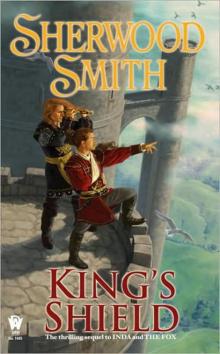 King's Shield
King's Shield Whispered Magics
Whispered Magics Fleeing Peace
Fleeing Peace Barefoot Pirate
Barefoot Pirate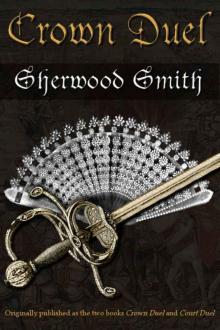 Crown Duel
Crown Duel Mearsies Heili Bounces Back
Mearsies Heili Bounces Back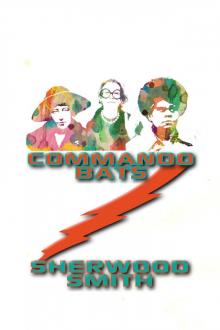 Commando Bats
Commando Bats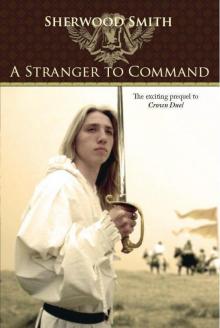 A Stranger to Command
A Stranger to Command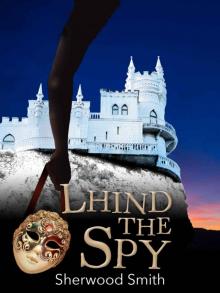 Lhind the Spy
Lhind the Spy The Spy Princess
The Spy Princess Blood Spirits
Blood Spirits Sasharia en Garde
Sasharia en Garde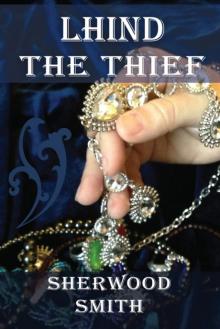 Lhind the Thief
Lhind the Thief Paradise Drift
Paradise Drift Banner of the Damned
Banner of the Damned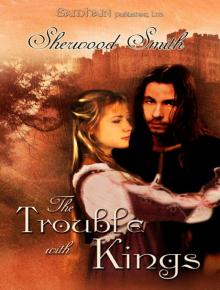 The Trouble With Kings
The Trouble With Kings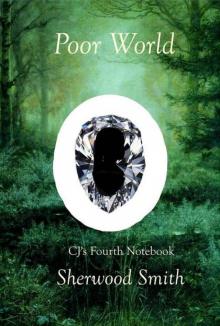 Poor World
Poor World Treason's Shore
Treason's Shore Wren Journeymage
Wren Journeymage A Posse of Princesses
A Posse of Princesses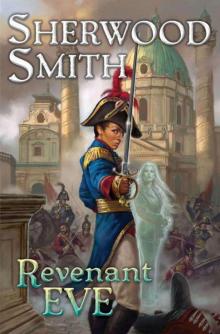 Revenant Eve
Revenant Eve Once a Princess
Once a Princess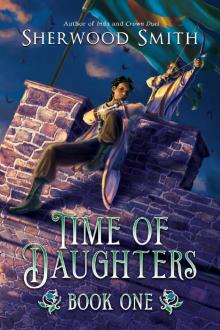 Time of Daughters I
Time of Daughters I Rondo Allegro
Rondo Allegro Coronets and Steel
Coronets and Steel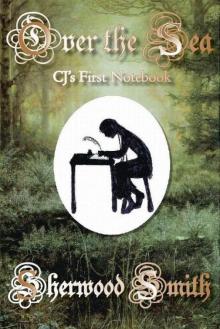 Over the Sea
Over the Sea Senrid
Senrid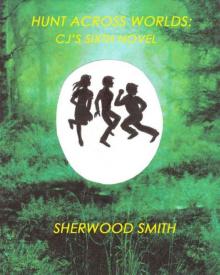 Hunt Across Worlds
Hunt Across Worlds A Sword Named Truth
A Sword Named Truth The Fox
The Fox Twice a Prince
Twice a Prince Fair Winds and Homeward Sail: Sophy Croft's Story
Fair Winds and Homeward Sail: Sophy Croft's Story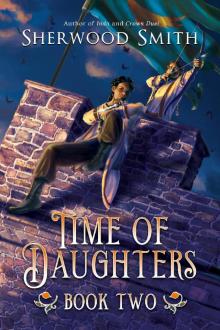 Time of Daughters II
Time of Daughters II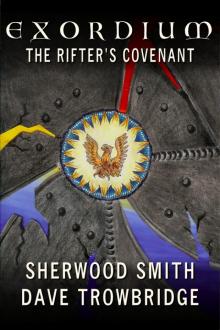 The Rifter's Covenant
The Rifter's Covenant The Phoenix in Flight
The Phoenix in Flight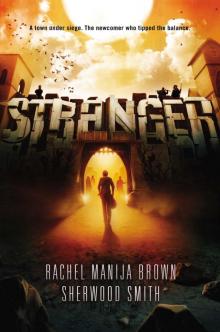 Stranger
Stranger The Thrones of Kronos
The Thrones of Kronos A Prison Unsought
A Prison Unsought Twice a Prince: Sasharia En Garde Book 2
Twice a Prince: Sasharia En Garde Book 2